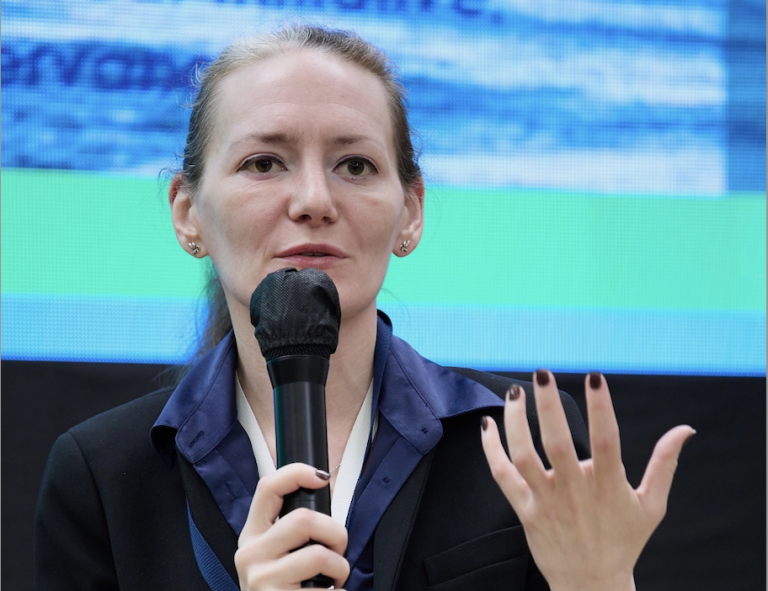Dr. Bruce Jones
Bruce Jones is a senior fellow with the Strobe Talbott Center for Security, Strategy, and Technology in the Foreign Policy program at the Brookings Institution; he also works with the Center for Asia Policy Studies. He is also a consulting professor at the Freeman Spogli Institute at Stanford University. From 2015 to 2020, Jones previously served as the vice president and director for the Foreign Policy program.
Jones’ research expertise and policy experience is in international security. His current research focus is on U.S. strategy, international order, and great power relations. His most recent books on the topic are “To Rule the Waves: How Control of the World’s Oceans Shapes the Fate of the Superpowers” (Scribner, 2021); “The Marshall Plan and the Shaping of American Strategy,” (Brookings Institution Press, 2017); and “Still Ours to Lead: America, Rising Powers, and the Tension between Rivalry and Restraint” (Brookings Institution Press, 2014). He is also co-author with Carlos Pascual and Stephen Stedman of “Power and Responsibility: Building International Order in an Era of Transnational Threats” (Brookings Institution Press, 2009); and co-editor with Waheguru Pal Singh Sidhu and Pratap Bhanu Mehta of “Shaping the Emerging World: India and the Multilateral Order” (Brookings Press, 2013). Other publications include “The State of the International Order,” with Thomas Wright (Brookings, 2014); “Managing a Changing World” (Foreign Policy, March 2011); and “How Do Rising Powers Rise?” (Survival, December 2010).
Jones has conducted research focused on the geopolitics of energy and climate change. He recently co-authored with David Victor a report titled, “Undiplomatic action: A practical guide to the new politics and geopolitics of climate change” (Brookings, February 2018). Other publications include: with David Steven, “The Risk Pivot: Great Powers, International Security and the Energy Revolution” (Brookings Institution Press, November 2014); with David Steven and Emily O’Brien, “Fueling the New Order” (Brookings, April 2014); and with David Steven and Andrew Hart, “Chill Out: Why Cooperation is Balancing Conflict Among Major Powers in the New Arctic” (Brookings, 2012).
Jones has extensive experience and expertise on intervention and crisis management. He served in the United Nations’ operation in Kosovo, and was special assistant to the U.N. special coordinator for the Middle East peace process. He is co-editor with Shepard Forman and Richard Gowan of “Cooperating for Peace and Security” (Cambridge University Press, 2009) and author of “Peacemaking in Rwanda: The Dynamics of Failures” (Lynne Reinner, 2001). He has also served in advisory positions for the U.S. State Department and the World Bank on fragile states, including as senior external advisor to the World Bank’s “2011 World Development Report on Conflict, Security and Development.”
Jones also has significant experience on multilateral institutions. He was a senior advisor to Kofi Annan on U.N. reform and served as deputy research director to the U.N.’s High-level Panel on Threats, Challenges and Change, as well as lead scholar for the International Task Force on Global Public Goods. Related publications include “Managing the New Threat Landscape: Adapting the tools of International Peace and Security” (Brookings, September 2018); “Beyond Blocs: The West, Rising Powers and Interest-Based International Cooperation” (The Stanley Foundation, October 2011); “Libya and the Responsibilities of Power” (Survival, June 2011); and “The G8 and the Threat of Bloc Politics in the International System” (Brookings, May 2011).
Jones has written for, appeared with, or been cited by: CNN; BBC World Service; The New York Times; Los Angeles Times; NPR; The Huffington Post; Nikkei Asian Review; Project Syndicate; “The Tavis Smiley Show”; Al Jazeera English; Reuters; Voice of America; CCTV; and Sky News.
He holds a doctorate from the London School of Economics, and he was the Hamburg fellow in conflict prevention at Stanford University.
Bruce joins The International Risk Podcast for a timely conversation on the escalating tensions in the South China Sea and their implications for global security. From military brinkmanship and strategic maritime claims to regional power shifts and the fragility of international maritime law, he and Dominic Bowen explore how this critical waterway has become a focal point in the contest for influence between China, the United States, and regional actors.
Click the button below to listen to the full episode. If you’d like to learn more about strategic chokepoints, deterrence failures, and the risks of conflict escalation in the Indo-Pacific, be sure to read our latest feature on the topic!








One Comment
Comments are closed.